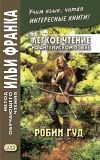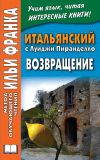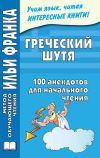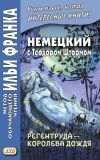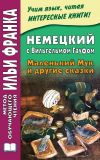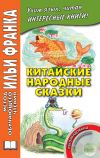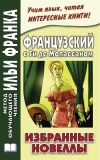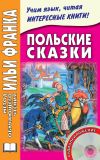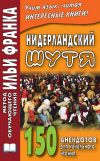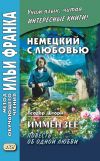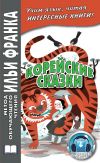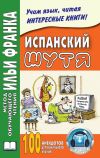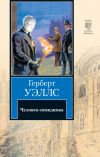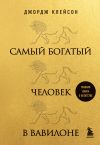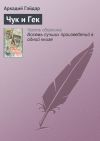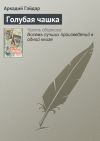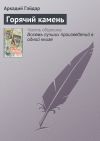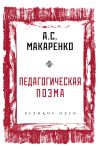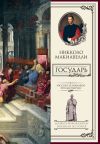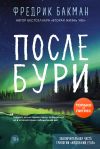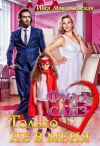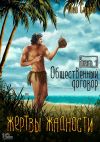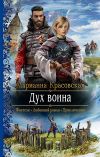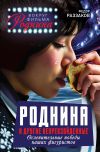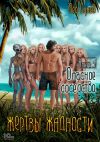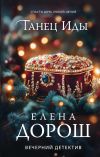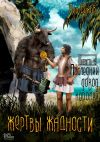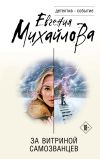Текст книги "Английская коллекция. Уильям Батлер Йейтс. Рассказы о Рыжем Ханрахане / W. B. Yeats. Stories of Red Hanrahan"
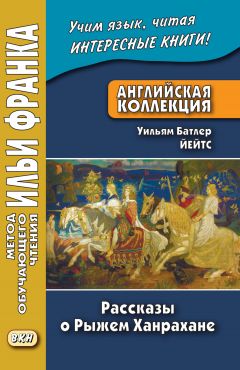
Автор книги: Уильям Йейтс
Жанр: Иностранные языки, Наука и Образование
Возрастные ограничения: +16
сообщить о неприемлемом содержимом
Текущая страница: 7 (всего у книги 9 страниц)
drowsiness ['draʋzɪnǝs], shepherd ['ʃepǝd], crutches ['krʌtʃɪz]
Then curses he old Paddy Bruen of the Well of Bride
Because no hair is on his head and drowsiness inside.
Then Paddy’s neighbour, Peter Hart, and Michael Gill, his friend,
Because their wandering histories are never at an end.
And then old Shemus Cullinan, shepherd of the Green Lands
Because he holds two crutches between his crooked hands;
Then calls a curse from the dark North upon old Paddy Doe (еще призывает /он/ проклятье мрачного Севера на старого Пэдди Доу),
Who plans to lay his withering head upon a breast of snow (который намерен положить свою сморщенную голову на белоснежную грудь: «на грудь из снега»; to plan – чертить планы, карты; строить планы, затевать),
Who plans to wreck a singing voice and break a merry heart (который намерен погубить поющий голос и разбить веселое сердце),
He bids a curse hang over him till breath and body part (он велит проклятью висеть над ним, покуда дыхание /его/ и тело не расстанутся; to bid – просить, приказывать /устар./);
But he calls down a blessing on the blossom of the May (но он призывает благословение на майский цвет),
Because it comes in beauty, and in beauty blows away (потому что появляется он во /всей/ красе и во /всей/ красе облетает; to blow away – сдуваться, уноситься воздушным потоком).
breast [brest], breath [breθ], beauty ['bju:tɪ]
Then calls a curse from the dark North upon old Paddy Doe,
Who plans to lay his withering head upon a breast of snow,
Who plans to wreck a singing voice and break a merry heart,
He bids a curse hang over him till breath and body part;
But he calls down a blessing on the blossom of the May,
Because it comes in beauty, and in beauty blows away.
He said it over to the children verse by verse (он говорил это детям, строку за строкой; verse – стих /стихотворная строка/) till all of them could say a part of it (пока все они не смогли произнести часть его = стихотворения), and some that were the quickest could say the whole of it (а некоторые, что были посмышленей, не смогли рассказать его целиком; quick – быстрый, скорый; сообразительный, смышленый).
“That will do for today,” he said then (на сегодня этого достаточно, – сказал он тогда; that will do – сойдет, этого достаточно). “And what you have to do now is to go out (и что вам нужно сейчас сделать, так это пойти) and sing that song for a while, to the tune of the Green Bunch of Rushes (и попеть эту песню какое-то время на мелодию «Пучка зеленого тростника»), to everyone you meet, and to the old men themselves (каждому, кого вы встретите, и самим тем старикам).”
“I will do that,” said one of the little lads (я сделаю это, – сказал один из ребят: «один из маленьких парней»); “I know old Paddy Doe well (я хорошо знаю старого Пэдди Доу). Last Saint John’s Eve we dropped a mouse down his chimney (в канун прошлого Иванова дня мы бросили мышь ему в камин; Saint John – Иоанн Креститель: «Святой Иоанн»), but this is better than a mouse (но это будет получше, чем мышь).”
quickest ['kwɪkɪst], tune [tju:n], verse [vɜ:s], chimney ['tʃɪmnɪ]
He said it over to the children verse by verse till all of them could say a part of it, and some that were the quickest could say the whole of it.
“That will do for today,” he said then. “And what you have to do now is to go out and sing that song for a while, to the tune of the Green Bunch of Rushes, to everyone you meet, and to the old men themselves.”
“I will do that,” said one of the little lads; “I know old Paddy Doe well. Last Saint John’s Eve we dropped a mouse down his chimney, but this is better than a mouse.”
“I will go into the town of Sligo and sing it in the street (я пойду в городок Слайго и спою ее на улице),” said another of the boys (сказал другой мальчик). “Do that,” said Hanrahan, “and go into the Burrough (сделайте это, – сказал Ханрахан, – да сходите в Бэрроу) and tell it to Margaret Rooney and Mary Gillis, and bid them to sing it (расскажите /слова/ ее Маргарет Руни и Мэри Гиллис и попросите их спеть ее), and to make the beggars and the bacachs sing it wherever they go (и /пусть они/ велят нищим и калекам петь ее, где бы те ни бродили).” The children ran out then, full of pride and of mischief (и дети выбежали наружу, полные гордости и озорства; mischief – беда; озорство, проказы), calling out the song as they ran (выкрикивая /слова/ песни на ходу: «когда они бежали»), and Hanrahan knew there was no danger it would not be heard (и Ханрахан понял, что нет опасности, что ее не услышат: «/что/ она не будет услышана»).
He was sitting outside the door the next morning (следующим утром он сидел перед дверью; outside – с наружной стороны /чего-л./, снаружи), looking at his scholars as they came by in twos and threes (наблюдая, как его ученики подходят по двое и по трое).
wherever [weǝr'evǝ], pride [praɪd], mischief ['mɪstʃɪf]
“I will go into the town of Sligo and sing it in the street,” said another of the boys. “Do that,” said Hanrahan, “and go into the Burrough and tell it to Margaret Rooney and Mary Gillis, and bid them to sing it, and to make the beggars and the bacachs sing it wherever they go.” The children ran out then, full of pride and of mischief, calling out the song as they ran, and Hanrahan knew there was no danger it would not be heard.
He was sitting outside the door the next morning, looking at his scholars as they came by in twos and threes.
They were nearly all come (они пришли уже почти все), and he was considering the place of the sun in the heavens (и он посматривал на место солнца в небе; to consider – пристально рассматривать, изучать) to know whether it was time to begin (чтобы узнать, пришло ли время начинать), when he heard a sound that was like the buzzing of a swarm of bees in the air (как /вдруг/ услышал шум, который был похож на гудение пчелиного роя в воздухе), or the rushing of a hidden river in time of flood (или стремительное течение подземной реки в период половодья; hidden – спрятанный, скрытый). Then he saw a crowd coming up to the cabin from the road (потом он увидел толпу, идущую к /его/ хижине со стороны дороги), and he took notice that all the crowd was made up of old men (и он заметил, что вся толпа состоит из стариков; to take notice – обращать внимание; made up of – состоящий из), and that the leaders of it were Paddy Bruen, Michael Gill and Paddy Doe (и что вожаками ее были Пэдди Бруэн, Майкл Гилл и Пэдди Доу), and there was not one in the crowd but had in his hand an ash stick or a blackthorn (и в толпе нет никого, кто бы не держал в руке палку из ясеня или из терновника).
whether ['weðǝ], buzzing ['bʌzɪŋ], swarm [swɔ:m]
They were nearly all come, and he was considering the place of the sun in the heavens to know whether it was time to begin, when he heard a sound that was like the buzzing of a swarm of bees in the air, or the rushing of a hidden river in time of flood. Then he saw a crowd coming up to the cabin from the road, and he took notice that all the crowd was made up of old men, and that the leaders of it were Paddy Bruen, Michael Gill and Paddy Doe, and there was not one in the crowd but had in his hand an ash stick or a blackthorn.
As soon as they caught sight of him (как только они заметили его; to catch sight of – заметить, увидеть /кого-л., что-л./), the sticks began to wave hither and thither like branches in a storm (палки начали качаться из стороны в сторону, словно ветви /деревьев/ в бурю; to wave – двигаться взад и вперед; hither and thither – туда и сюда, взад и вперед), and the old feet to run (а старые ноги побежали).
He waited no longer, but made off up the hill behind the cabin (ждать он долго не /стал/, а бросился вверх по холму за хижиной; to make off – убегать, удирать) till he was out of their sight (пока не скрылся у них из виду).
After a while he came back round the hill (через некоторое время он вернулся, обогнув холм: «вокруг холма»), where he was hidden by the furze growing along a ditch (где его скрывали /кусты/ утесника, растущего вдоль канавы). And when he came in sight of his cabin (и когда взору его предстала его лачуга; sight – зрение; поле зрения, предел видимости) he saw that all the old men had gathered around it (он увидел, что все старики собрались вокруг нее), and one of them was just at that time thrusting a rake with a wisp of lighted straw on it into the thatch (и один из них как раз в этот момент толкает граблями в кровлю пук зажженной соломы).
thither ['ðɪðǝ], sight [saɪt], furze [fɜ:z]
As soon as they caught sight of him, the sticks began to wave hither and thither like branches in a storm, and the old feet to run.
He waited no longer, but made off up the hill behind the cabin till he was out of their sight.
After a while he came back round the hill, where he was hidden by the furze growing along a ditch. And when he came in sight of his cabin he saw that all the old men had gathered around it, and one of them was just at that time thrusting a rake with a wisp of lighted straw on it into the thatch.
“My grief,” he said, “I have set Old Age and Time and Weariness and Sickness against me (горе мне, – сказал он, – я настроил Старость, Время, Утомление и Недуг против себя; to set – ставить, класть; настраивать против /кого-л., чего-л./), and I must go wandering again (и мне придется снова отправиться странствовать). And, O Blessed Queen of Heaven,” he said (о благословенная Царица Небесная, – сказал он), “protect me from the Eagle of Ballygawley, the Yew Tree of the Steep Place of the Strangers, the Pike of Castle Dargan Lake (защити меня от Орла из Бэллиголи, от Тисового Дерева с Кручи Чужестранцев, от Щуки из озера близ Замка Дарган), and from the lighted wisps of their kindred, the Old Men (и от зажженных пучков /соломы/ их сородичей, стариков; kindred – родственники, родня)!”
weariness ['wɪǝrɪnɪs], heaven ['hevn], kindred ['kɪndrɪd]
“My grief,” he said, “I have set Old Age and Time and Weariness and Sickness against me, and I must go wandering again. And, O Blessed Queen of Heaven,” he said, “protect me from the Eagle of Ballygawley, the Yew Tree of the Steep Place of the Strangers, the Pike of Castle Dargan Lake, and from the lighted wisps of their kindred, the Old Men!”
Hanrahan’s vision
(Видение Ханрахана)
It was in the month of June Hanrahan was on the road near Sligo (был июнь месяц, когда Ханрахан оказался на дороге неподалеку от Слайго), but he did not go into the town, but turned towards Beinn Bulben (но он не пошел в город, а свернул к /горе/ Бен-Балбен); for there were thoughts of the old times coming upon him (поскольку на него нахлынули воспоминания: «мысли» о былых временах), and he had no mind to meet with common men (и ему не хотелось встречаться с простыми людьми; mind /зд./ – намерение, желание; common – общий, всеобщий; обыкновенный, простой). And as he walked he was singing to himself a song (и пока он шел = по пути он напевал себе песенку) that had come to him one time in his dreams (которая возникла у него однажды во сне):
O Death’s old bony finger (старческий костлявый палец Смерти)
Will never find us there (никогда не найдет нас там)
In the high hollow townland (в лощинах вышних селений)
Where love’s to give and to spare (где любви – избыток/сколько хочешь);
Where boughs have fruit and blossom (где на ветвях – фрукты и первоцвет)
At all times of the year (во все времена года);
June [dʒu:n], Sligo ['slaɪɡǝʋ], bough [baʋ]
It was in the month of June Hanrahan was on the road near Sligo, but he did not go into the town, but turned towards Beinn Bulben; for there were thoughts of the old times coming upon him, and he had no mind to meet with common men. And as he walked he was singing to himself a song that had come to him one time in his dreams:
O Death’s old bony finger
Will never find us there
In the high hollow townland
Where love’s to give and to spare;
Where boughs have fruit and blossom
At all times of the year;
Where rivers are running over (где текут реки)
With red beer and brown beer (из багрового и коричневого пива).
An old man plays the bagpipes (а старики играют на волынках)
In a gold and silver wood (в золотых и серебряных лесах);
Queens, their eyes blue like the ice (и королевы, чьи глаза голубы, как лед),
Are dancing in a crowd (танцуют в толпе).
The little fox he murmured (но лисенок проворчал; to murmur – производить легкий шум, шелестеть; бормотать, ворчать),
“O what of the world’s bane (а что же есть проклятие этого мира; bane – убийца /устар./; бедствие, бич)?”
The sun was laughing sweetly (солнце ласково смеялось),
The moon plucked at my rein (луна тянула за поводья моего /коня/; to pluck – срывать, собирать /цветы/; дергать);
But the little red fox murmured (но маленький рыжий лисенок проворчал),
“O do not pluck at his rein (о, не тяни его поводья),
He is riding to the townland (он скачет в то селение)
That is the world’s bane (вот это и есть проклятие мира).”
beer [bɪǝ], murmur ['mɜ:mǝ], sweetly ['swi:tlɪ]
Where rivers are running over
With red beer and brown beer.
An old man plays the bagpipes
In a gold and silver wood;
Queens, their eyes blue like the ice,
Are dancing in a crowd.
The little fox he murmured,
“O what of the world’s bane?”
The sun was laughing sweetly,
The moon plucked at my rein;
But the little red fox murmured,
“O do not pluck at his rein,
He is riding to the townland
That is the world’s bane.”
When their hearts are so high (когда их сердца распаляются; high – высокий; возбужденный, взвинченный)
That they would come to blows (/так/, что они пошли бы сражаться; blow – удар),
They unhook their heavy swords (они снимают свои тяжелые мечи; to unhook – снимать с крючка)
From golden and silver boughs (с золотых и серебряных ветвей):
But all that are killed in battle (но все, кого убивают в бою)
Awaken to life again (восстают к жизни снова):
It is lucky that their story (к счастью, их история)
Is not known among men (неведома среди людей).
For O, the strong farmers (ибо… ох, сильные фермеры)
That would let the spade lie (не прикасались бы к своим лопатам: «позволили бы лопатам лежать»),
Their hearts would be like a cup (их сердца сделались бы подобны чаше)
That somebody had drunk dry (которую кто-то опустошил до дна: «выпил досуха»).
unhook [ʌn'hʋk], sword [sɔ:d], dry [draɪ]
When their hearts are so high
That they would come to blows,
They unhook their heavy swords
From golden and silver boughs:
But all that are killed in battle
Awaken to life again:
It is lucky that their story
Is not known among men.
For O, the strong farmers
That would let the spade lie,
Their hearts would be like a cup
That somebody had drunk dry.
Michael will unhook his trumpet (Михаил снимет свою трубу)
From a bough overhead (с ветки над головой),
And blow a little noise (и выдует негромкий звук)
When the supper has been spread (когда будет ужин уже накрыт; to spread – распространять /по поверхности/; накрывать /на стол/).
Gabriel will come from the water (Гавриил выйдет из вод)
With a fish tail, and talk (с рыбьим хвостом и расскажет)
Of wonders that have happened (о чудесах, которые случились)
On wet roads where men walk (на дождливых дорогах, по которым бредут люди),
And lift up an old horn (и подымет старый рог)
Of hammered silver, and drink (из чеканного серебра, и будет пить)
Till he has fallen asleep (покуда не свалит его сон; to fall asleep – заснуть)
Upon the starry brink (у звездного /неба/ на краю: «на звездном краю»).
Michael ['maɪk(ǝ)l], trumpet ['trʌmpɪt], starry ['stɑ:rɪ]
Michael will unhook his trumpet
From a bough overhead,
And blow a little noise
When the supper has been spread.
Gabriel will come from the water
With a fish tail, and talk
Of wonders that have happened
On wet roads where men walk,
And lift up an old horn
Of hammered silver, and drink
Till he has fallen asleep
Upon the starry brink.
Hanrahan had begun to climb the mountain then (Ханрахан уже начал взбираться на гору), and he gave over singing, for it was a long climb for him (петь он прекратил, поскольку для него это был долгий подъем; to give over – перестать, прекратить /разг./), and every now and again he had to sit down and to rest for a while (и то и дело ему приходилось ненадолго садиться, чтобы отдохнуть; every now and again – время от времени). And one time he was resting he took notice of a wild briar bush, with blossoms on it (один раз, отдыхая, он заметил куст дикого шиповника с цветами на нем), that was growing beside a rath (который рос неподалеку от древнего крепостного вала; rath /ирл./ – расположенный по кругу земляной вал, в древности служивший крепостью и резиденцией вождя племени), and it brought to mind the wild roses he used to bring to Mary Lavelle (и это напомнило те дикие розы, которые он частенько приносил Мэри Лэвелл; to bring to mind – напоминать, вызывать в памяти), and to no woman after her (и /больше/ ни одной женщине после нее). And he tore off a little branch of the bush (он сорвал маленькую веточку с куста; to tear), that had buds on it and open blossoms (на которой были и бутоны и распустившиеся цветы; open – открытый; распустившийся /о цветке/), and he went on with his song (и продолжил свою песню; to go on – продолжать):
climb [klaɪm], briar ['braɪǝ], rath [rɑ:θ], tear /глагол/ [teǝ]
Hanrahan had begun to climb the mountain then, and he gave over singing, for it was a long climb for him, and every now and again he had to sit down and to rest for a while. And one time he was resting he took notice of a wild briar bush, with blossoms on it, that was growing beside a rath, and it brought to mind the wild roses he used to bring to Mary Lavelle, and to no woman after her. And he tore off a little branch of the bush, that had buds on it and open blossoms, and he went on with his song:
The little fox he murmured (но лисенок проворчал),
“O what of the world’s bane (а что же c проклятием этого мира)?”
The sun was laughing sweetly (солнце ласково смеялось),
The moon plucked at my rein (луна тянула за поводья моего /коня/);
But the little red fox murmured (но маленький рыжий лисенок проворчал),
“O do not pluck at his rein (о, не тяни его поводья),
He is riding to the townland (он скачет в то селение)
That is the world’s bane (вот это и есть проклятие мира).”
what [wɒt], pluck [plʌk], townland [,taʋn'lænd]
The little fox he murmured,
“O what of the world’s bane?”
The sun was laughing sweetly,
The moon plucked at my rein;
But the little red fox murmured,
“O do not pluck at his rein,
He is riding to the townland
That is the world’s bane.”
And he went on climbing the hill, and left the rath (он продолжал взбираться вверх, миновал крепостной вал; hill – возвышенность, холм; to leave – оставлять, покидать; проходить мимо, миновать), and there came to his mind some of the old poems (и тут ему на память пришли старинные стихи) that told of lovers, good and bad (которые рассказывали о влюбленных, добрых и порочных; bad – плохой, скверный; испорченный, безнравственный), and of some that were awakened from the sleep of the grave itself (и о некоторых, которых пробуждала ото сна из самой могилы; to awaken – будить, пробуждать) by the strength of one another’s love (сила обоюдной любви; one another – друг друга), and brought away to a life in some shadowy place (и уносила прочь к жизни в некоем призрачном месте; shadowy – тенистый; смутный, призрачный), where they are waiting for the judgment and banished from the face of God (где они ждут суда, отринутые от Лика Божьего).
And at last, at the fall of day, he came to the Steep Gap of the Strangers (и наконец к исходу дня он подошел к крутому Обрыву Чужестранцев; gap – брешь, пролом), and there he laid himself down along a ridge of rock, and looked into the valley (там он улегся вдоль гребня горы и /стал/ смотреть в долину; to lay), that was full of grey mist spreading from mountain to mountain (что была заполнена серым туманом, стелющимся от горы к горе; to spread – расстилаться, распространяться).
awaken [ǝ'weɪk(ǝ)n], valley ['vælɪ], spread [spred]
And he went on climbing the hill, and left the rath, and there came to his mind some of the old poems that told of lovers, good and bad, and of some that were awakened from the sleep of the grave itself by the strength of one another’s love, and brought away to a life in some shadowy place, where they are waiting for the judgment and banished from the face of God.
And at last, at the fall of day, he came to the Steep Gap of the Strangers, and there he laid himself down along a ridge of rock, and looked into the valley, that was full of grey mist spreading from mountain to mountain.
And it seemed to him as he looked (и ему казалось, пока он смотрел) that the mist changed to shapes of shadowy men and women (что туман принимает очертания призрачных мужчин и женщин), and his heart began to beat with the fear and the joy of the sight (и сердце его начало /учащенно/ биться от страха и радости от этого зрелища). And his hands, that were always restless (руки его, и так всегда беспокойные), began to pluck off the leaves of the roses on the little branch (стали обрывать лепестки с роз на маленькой веточке; leaf – лист; лепесток /разг./), and he watched them as they went floating down into the valley in a little fluttering troop (и он наблюдал за ними, как они парят, опускаясь в долину маленькой трепещущей стайкой; to float – плавать, держаться на поверхности; плыть /по течению, по воздуху/; troop – группа людей, отряд; стадо, стая и т. п.).
Suddenly he heard a faint music (внезапно он услышал приглушенную музыку; faint – слабый, ослабевший; неотчетливый, неясный), a music that had more laughter in it and more crying than all the music of this world (музыку, в которой было больше смеха и больше рыданий, чем во всей музыке этого мира).
branch [brɑ:ntʃ], suddenly ['sʌdnlɪ], crying ['kraɪɪŋ]
And it seemed to him as he looked that the mist changed to shapes of shadowy men and women, and his heart began to beat with the fear and the joy of the sight. And his hands, that were always restless, began to pluck off the leaves of the roses on the little branch, and he watched them as they went floating down into the valley in a little fluttering troop.
Suddenly he heard a faint music, a music that had more laughter in it and more crying than all the music of this world.
And his heart rose when he heard that (его сердце воспрянуло, когда он это услышал; to rise – подниматься, восходить; оживать, возрождаться), and he began to laugh out loud, for he knew (он начал громко смеяться, потому что понял) that music was made by some who had a beauty and a greatness beyond the people of this world (что музыка создана теми, кто обладает красотой и величием большими, чем у людей этого мира; beyond – за, по ту сторону; сверх, больше). And it seemed to him that the little soft rose leaves (и ему показалось, что маленькие нежные розовые лепестки; soft – мягкий; нежный) as they went fluttering down into the valley (пока они, подрагивая, опускались в долину) began to change their shape (начали изменять свою форму) till they looked like a troop of men and women far off in the mist (пока далеко в тумане не /стали/ походить на отряд/рой из мужчин и женщин;troop – отряд, группа людей; стадо, стая, рой /птиц, зверей, насекомых и т. п./), with the colour of the roses on them (одетых в розовый цвет: «с цветом роз на них»).
loud [laʋd], flutter ['flʌtǝ], troop [tru:p]
And his heart rose when he heard that, and he began to laugh out loud, for he knew that music was made by some who had a beauty and a greatness beyond the people of this world. And it seemed to him that the little soft rose leaves as they went fluttering down into the valley began to change their shape till they looked like a troop of men and women far off in the mist, with the colour of the roses on them.
And then that colour changed to many colours (а потом этот цвет сменился множеством цветов), and what he saw was a long line of tall beautiful young men, and of queen-women (и он увидел длинную вереницу высоких молодых мужчин и женщин-королев; line – веревка, бечевка; ряд, линия), that were not going from him but coming towards him and past him (которые не удалялись от него, а двигались к нему и мимо него), and their faces were full of tenderness for all their proud looks (их лица были преисполнены нежности, несмотря на весь их гордый вид), and were very pale and worn (и были очень бледными и уставшими; worn – потертый, изношенный; to wear – носить /одежду/; изнашивать; протирать), as if they were seeking and ever seeking for high sorrowful things (как будто они искали, вечно искали нечто возвышенное и печальное). And shadowy arms were stretched out of the mist (призрачные руки тянулись из тумана; to stretch – растягивать, вытягивать; тянуть) as if to take hold of them, but could not touch them (как будто чтобы схватить их, но не могли и коснуться их; to take hold of – схватить, ухватиться), for the quiet that was about them could not be broken (ибо покой, окружавший их: «что был вокруг них», не мог быть нарушен).
women ['wɪmɪn], tenderness ['tendǝnɪs], touch [tʌtʃ]
And then that colour changed to many colours, and what he saw was a long line of tall beautiful young men, and of queen-women, that were not going from him but coming towards him and past him, and their faces were full of tenderness for all their proud looks, and were very pale and worn, as if they were seeking and ever seeking for high sorrowful things. And shadowy arms were stretched out of the mist as if to take hold of them, but could not touch them, for the quiet that was about them could not be broken.
And before them and beyond them, but at a distance as if in reverence (а перед ними и позади них, но на некотором расстоянии, как будто из почтительности), there were other shapes, sinking and rising and coming and going (виднелись другие очертания, /которые/ то опускались, то поднимались, то приближались, то отдалялись), and Hanrahan knew them by their whirling flight to be the Sidhe, the ancient defeated gods (и Ханрахан понял по их кружащемуся полету, что это были Ши, древние поверженные боги); and the shadowy arms did not rise to take hold of them (и призрачные руки не поднимались, чтобы схватить их), for they were of those that can neither sin nor obey (ибо они из тех, кто не может ни грешить, ни повиноваться). And they all lessened then in the distance (потом все они /стали/ уменьшаться вдалеке), and they seemed to be going towards the white door (и они, казалось, идут к белой двери) that is in the side of the mountain (которая находится в склоне горы; side – сторона, одна из поверхностей /чего-л./; склон /горы/).
reverence ['rev(ǝ)r(ǝ)ns], neither ['naɪðǝ], obey [ǝ'beɪ]
And before them and beyond them, but at a distance as if in reverence, there were other shapes, sinking and rising and coming and going, and Hanrahan knew them by their whirling flight to be the Sidhe, the ancient defeated gods; and the shadowy arms did not rise to take hold of them, for they were of those that can neither sin nor obey. And they all lessened then in the distance, and they seemed to be going towards the white door that is in the side of the mountain.
The mist spread out before him now (туман расстилался перед ним теперь) like a deserted sea washing the mountains with long grey waves (подобно пустынному морю, омывающему горы длинными серыми волнами), but while he was looking at it, it began to fill again (но когда он всмотрелся в него, он = туман снова стал наполняться) with a flowing broken witless life that was a part of itself (текучей, бурлящей безумной жизнью, которая являлась частью его самого; broken – сломанный, разбитый; бурный /о реке, море/), and arms and pale heads covered with tossing hair appeared in the greyness (и в этой серой мгле: «в этой серости» показались руки и бледные головы, покрытые развевающимися волосами; to toss – бросать, метать; развеваться, колыхаться). It rose higher and higher till it was level with the edge of the steep rock (он = туман поднимался все выше и выше, пока не сровнялся с краем /обрыва/ крутой скалы;level – уровень; одинаковый уровень; edge – кромка, край; обрыв на краю плато), and then the shapes grew to be solid (и тогда очертания уплотнились: «стали твердыми»), and a new procession half lost in mist passed very slowly with uneven steps (и новая процессия, наполовину скрытая: «потерянная» в тумане, очень медленно прошла неровными шагами), and in the midst of each shadow there was something shining in the starlight (и в середине = внутри каждой тени находилось что-то сияющее в свете звезд).
deserted [dɪ'zɜ:tɪd], procession [prǝ'seʃn], uneven [ʌn'i:vǝn]
The mist spread out before him now like a deserted sea washing the mountains with long grey waves, but while he was looking at it, it began to fill again with a flowing broken witless life that was a part of itself, and arms and pale heads covered with tossing hair appeared in the greyness. It rose higher and higher till it was level with the edge of the steep rock, and then the shapes grew to be solid, and a new procession half lost in mist passed very slowly with uneven steps, and in the midst of each shadow there was something shining in the starlight.
They came nearer and nearer (они подходили все ближе и ближе), and Hanrahan saw that they also were lovers (и Ханрахан увидел, что они тоже были влюбленными), and that they had heart-shaped mirrors instead of hearts (и что вместо сердец у них были зеркала в форме сердца), and they were looking and ever looking on their own faces in one another’s mirrors (и они смотрели, все время смотрели на свои собственные лица в зеркалах друг друга; ever – всегда, вечно; постоянно). They passed on, sinking downward as they passed (они продолжали идти, опускаясь вниз, по мере того как проходили), and other shapes rose in their place (и другие фигуры поднимались на их место; shape – форма, очертание; фигура), and these did not keep side by side, but followed after one another (но эти уже не держались вместе, а следовали друг за другом; side by side – бок о бок), holding out wild beckoning arms (протягивая руки и неистово маня /за собой/; to hold out – протягивать; wild /зд./ – неистовый, обуреваемый страстями; to beckon – манить, делать знак /рукой, пальцем/), and he saw that those who were followed were women (и он увидел, что те, за которыми следовали, были женщинами), and as to their heads they were beyond all beauty (их лица были красоты неописуемой: «что касается их голов, они были выше всей/всяческой красоты»; as to – относительно, что касается), but as to their bodies they were but shadows without life (но их тела являли собой лишь тени, лишенные жизни; without – без /указывает на отсутствие кого-л., чего-л./), and their long hair was moving and trembling about them (а их длинные волосы шевелились и трепетали вокруг них), as if it lived with some terrible life of its own (как будто жили какой-то своей собственной ужасной жизнью).
